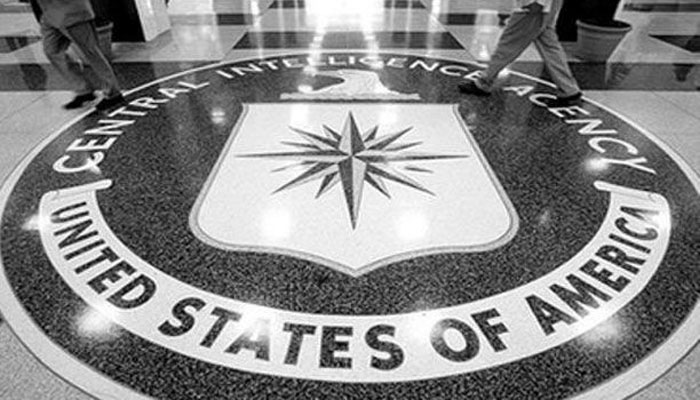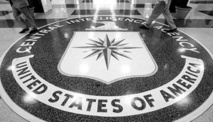While heavily redacted, the report is expected to be a damning indictment of a secret program under the previous administration of former president George W. Bush to question dozens of detainees.
Since coming to office in 2009, President Barack Obama has sought to distance the United States from the previous program and outlawed harsh interrogation techniques which he has denounced as "torture."
"We have heard from the committee that they do intend to release the report tomorrow," White House spokesman Josh Earnest told reporters.
"Prudent steps" had been taken to reinforce security at US facilities and diplomatic missions abroad in case the report, much of which has already been leaked, triggers anger, he added.
"That said, the administration strongly supports the release of this declassified summary of the report," Earnest said.
The report is understood to cover the treatment of around 100 terror suspects rounded up by US operatives between 2001 and 2009, after the September 11, 2001 attacks by Al-Qaeda which collapsed the World Trade Center in New York.
The suspects were subjected to waterboarding, stress positions and other harsh methods, in a series of interrogations either at CIA-run secret prisons or the Guantanamo Bay US military base in Cuba.
"We tortured some folks," Obama said in August, talking about the contents of the report.
The CIA's defenders insist the methods saved American lives by helping to uncover Al-Qaeda's network, while critics say they ran contrary to US values and hardened anti-American attitudes.
The 6,200-page report has been prepared by the US Senate intelligence committee. Its chairwoman, Senator Dianne Feinstein, sparred for months with the administration over proposed redactions.
In April, the committee voted overwhelmingly to release a reportedly severely critical 500-page executive summary and 20 conclusions of the secret document.
At the time Feinstein called the results "shocking" and pledged to work with the White House on negotiating redactions in order to release an unclassified summary to the public.
Obama also vowed swift declassification.
- Declassified -
But the undertaking caused deep friction between the intelligence community and the lawmakers and Senate staffers tasked with providing oversight.
Earnest said "we’ve declassified as much of that report as we can."
"The president believes that on principle it's important to release that report, so that people around the world and people here at home understand exactly what transpired," he added.
The State Department has put its missions around the world on watch, and asked them to review security arrangements ahead of the report's release "given the range of possible reactions overseas."
"We're in close touch with them, but I'm not going to get into any specifics about security at our embassies," State Department spokeswoman Jen Psaki said.
She confirmed Kerry had spoken with Feinstein last week about the "foreign policy implications of the release of the report."
He had raised "everything from our ongoing efforts related to ISIL, the safety of Americans being held hostage around the world," Psaki said, referring to the growing coalition to fight Islamic State militants in Iraq and Syria.
"He was simply having a discussion about the impacts that the release will have on those factors," she said, adding that timing of the report remained up to Feinstein.
But another State Department official, who asked not to be named, said "you could infer that he talked about delaying the release."
US embassies have frequently been the target of violent protests, particularly in Arab and North African countries.
In September 2012, on the anniversary of the 2001 attacks, US ambassador to Libya Chris Stevens, and three other Americans, were killed when heavily-armed militants stormed a US mission in Benghazi, eastern Libya.
---------------------------------------------------------------------------------------------------------------------
Since coming to office in 2009, President Barack Obama has sought to distance the United States from the previous program and outlawed harsh interrogation techniques which he has denounced as "torture."
"We have heard from the committee that they do intend to release the report tomorrow," White House spokesman Josh Earnest told reporters.
"Prudent steps" had been taken to reinforce security at US facilities and diplomatic missions abroad in case the report, much of which has already been leaked, triggers anger, he added.
"That said, the administration strongly supports the release of this declassified summary of the report," Earnest said.
The report is understood to cover the treatment of around 100 terror suspects rounded up by US operatives between 2001 and 2009, after the September 11, 2001 attacks by Al-Qaeda which collapsed the World Trade Center in New York.
The suspects were subjected to waterboarding, stress positions and other harsh methods, in a series of interrogations either at CIA-run secret prisons or the Guantanamo Bay US military base in Cuba.
"We tortured some folks," Obama said in August, talking about the contents of the report.
The CIA's defenders insist the methods saved American lives by helping to uncover Al-Qaeda's network, while critics say they ran contrary to US values and hardened anti-American attitudes.
The 6,200-page report has been prepared by the US Senate intelligence committee. Its chairwoman, Senator Dianne Feinstein, sparred for months with the administration over proposed redactions.
In April, the committee voted overwhelmingly to release a reportedly severely critical 500-page executive summary and 20 conclusions of the secret document.
At the time Feinstein called the results "shocking" and pledged to work with the White House on negotiating redactions in order to release an unclassified summary to the public.
Obama also vowed swift declassification.
- Declassified -
But the undertaking caused deep friction between the intelligence community and the lawmakers and Senate staffers tasked with providing oversight.
Earnest said "we’ve declassified as much of that report as we can."
"The president believes that on principle it's important to release that report, so that people around the world and people here at home understand exactly what transpired," he added.
The State Department has put its missions around the world on watch, and asked them to review security arrangements ahead of the report's release "given the range of possible reactions overseas."
"We're in close touch with them, but I'm not going to get into any specifics about security at our embassies," State Department spokeswoman Jen Psaki said.
She confirmed Kerry had spoken with Feinstein last week about the "foreign policy implications of the release of the report."
He had raised "everything from our ongoing efforts related to ISIL, the safety of Americans being held hostage around the world," Psaki said, referring to the growing coalition to fight Islamic State militants in Iraq and Syria.
"He was simply having a discussion about the impacts that the release will have on those factors," she said, adding that timing of the report remained up to Feinstein.
But another State Department official, who asked not to be named, said "you could infer that he talked about delaying the release."
US embassies have frequently been the target of violent protests, particularly in Arab and North African countries.
In September 2012, on the anniversary of the 2001 attacks, US ambassador to Libya Chris Stevens, and three other Americans, were killed when heavily-armed militants stormed a US mission in Benghazi, eastern Libya.
---------------------------------------------------------------------------------------------------------------------









 Home
Home Politics
Politics











